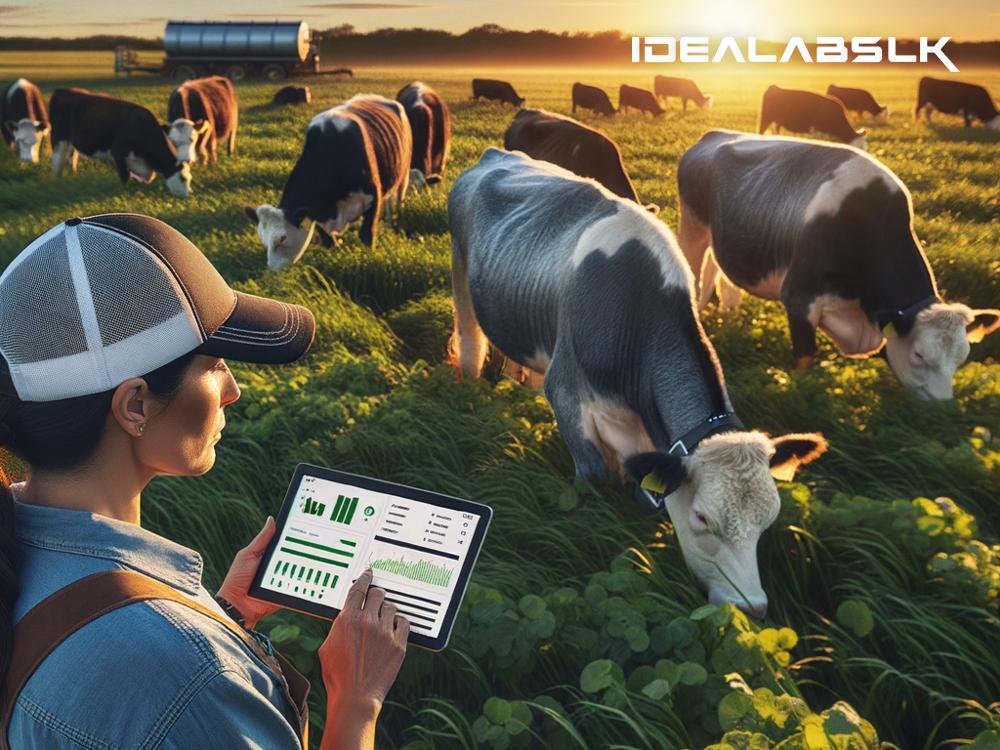Blockchain Technology: A Game-Changer in Livestock Health Monitoring
In the heart of the modern farm, amidst the usual sights and sounds, a revolution is quietly taking place. A technology famous for powering cryptocurrencies like Bitcoin is making its way into an entirely different realm: livestock health monitoring. This technology is none other than blockchain, and it promises to transform the way we monitor and manage the health of farm animals.
Understanding Blockchain
To appreciate the innovation that blockchain brings to livestock health monitoring, it's essential to understand what blockchain is. Imagine it as a digital ledger that is secure, transparent, and unchangeable. Once information is entered into the blockchain, it cannot be altered or deleted, making it a trustworthy source of data. Moreover, blockchain operates across a distributed network, meaning there is no single point of failure, enhancing its security and reliability.
The State of Livestock Health Monitoring
Traditionally, monitoring the health of livestock has been a task filled with challenges. Paper records are cumbersome and can be easily lost or damaged. Even when digital systems are used, the data can be scattered across different platforms, making it difficult to get a comprehensive view of an animal's health history. Additionally, the risk of data manipulation can compromise the integrity of the information, leading to mistrust among stakeholders.
The Advent of Blockchain in Livestock Health
Enter blockchain technology, which is setting the stage for a transformative approach to livestock health monitoring. By leveraging blockchain, farms can maintain a tamper-proof record of each animal's health history, treatments administered, and movement across the supply chain. This level of transparency and security was unthinkable in the past.
Here's how blockchain is making a difference:
-
Immutable Records: Every time a cow is vaccinated, a pig receives treatment, or a sheep is moved from one location to another, the event can be securely logged on the blockchain. This historical data becomes a comprehensive, unchangeable record of the animal's health and care over its lifetime.
-
Transparency Across the Supply Chain: With blockchain, every party involved in the livestock supply chain, from the farmer to the veterinarian, to the meat processor, can access up-to-date, accurate information. This transparency ensures that all stakeholders are informed and can make decisions based on reliable data.
-
Enhanced Trust: The immutable and transparent nature of blockchain helps build trust among consumers. People are increasingly concerned about where their food comes from and how it's produced. Blockchain technology can provide verifiable information about the health and treatment of the animals, giving consumers confidence in the products they purchase.
-
Efficient Disease Management: In the event of a disease outbreak, having a detailed health history of each animal can be a game-changer. Blockchain can facilitate rapid response, allowing for the quick isolation of affected animals and the trace back of their contacts, potentially saving many other animals from infection and preventing a widespread outbreak.
-
Cost Reduction: By streamlining the health monitoring process and reducing the instances of disease outbreaks through better management, blockchain can help lower costs for farmers. Less time spent on paperwork and more efficient health interventions translate into significant savings.
Challenges and Future Prospects
Despite its promising potential, the integration of blockchain technology in livestock health monitoring is not without challenges. The high initial investment, the need for digital infrastructure, and the requirement for stakeholders to adopt and adapt to new technologies are significant hurdles. However, with the fast pace of technological innovation and increasing awareness of blockchain's benefits, these challenges are gradually being overcome.
The future of blockchain in livestock health monitoring looks bright. As more farms embrace this technology, we can expect to see a significant improvement in the quality and transparency of food production. This progress not only benefits the farmers and the consumers but also contributes to the health and wellbeing of the animals, an outcome that is undoubtedly worth the investment.
Blockchain technology, with its unique combination of security, transparency, and efficiency, is poised to revolutionize livestock health monitoring. As we continue to embrace and develop this technology, the promise of a more transparent, reliable, and humane food system becomes increasingly tangible. For the modern farm and beyond, blockchain represents a step toward a future where technology and agriculture work hand in hand to create a healthier, more sustainable world.

